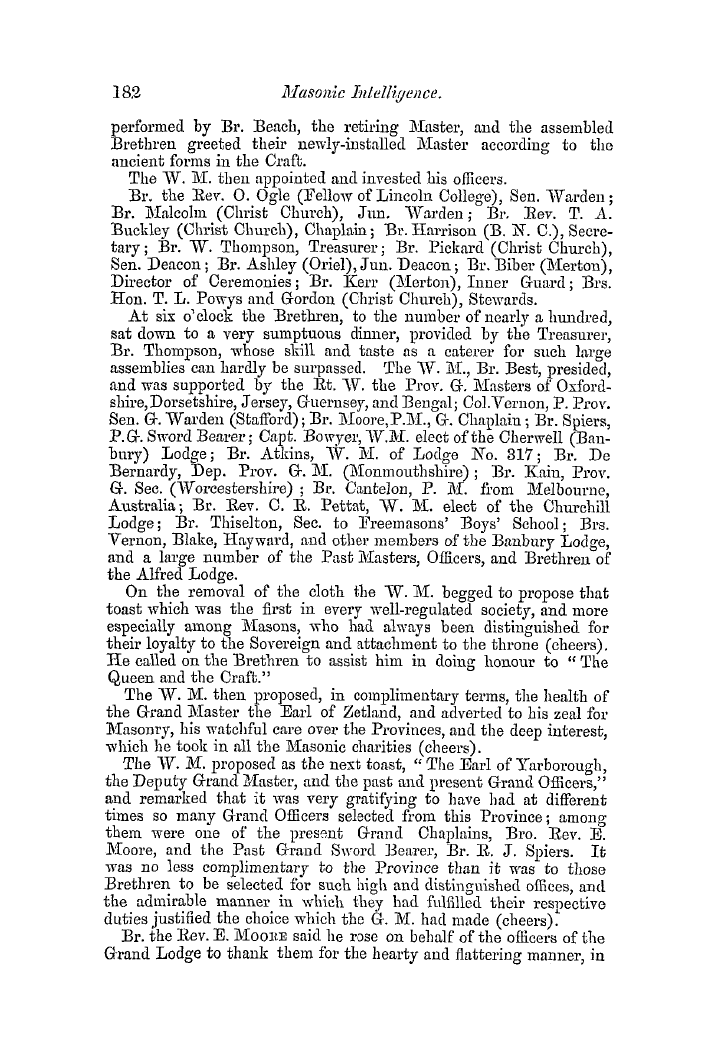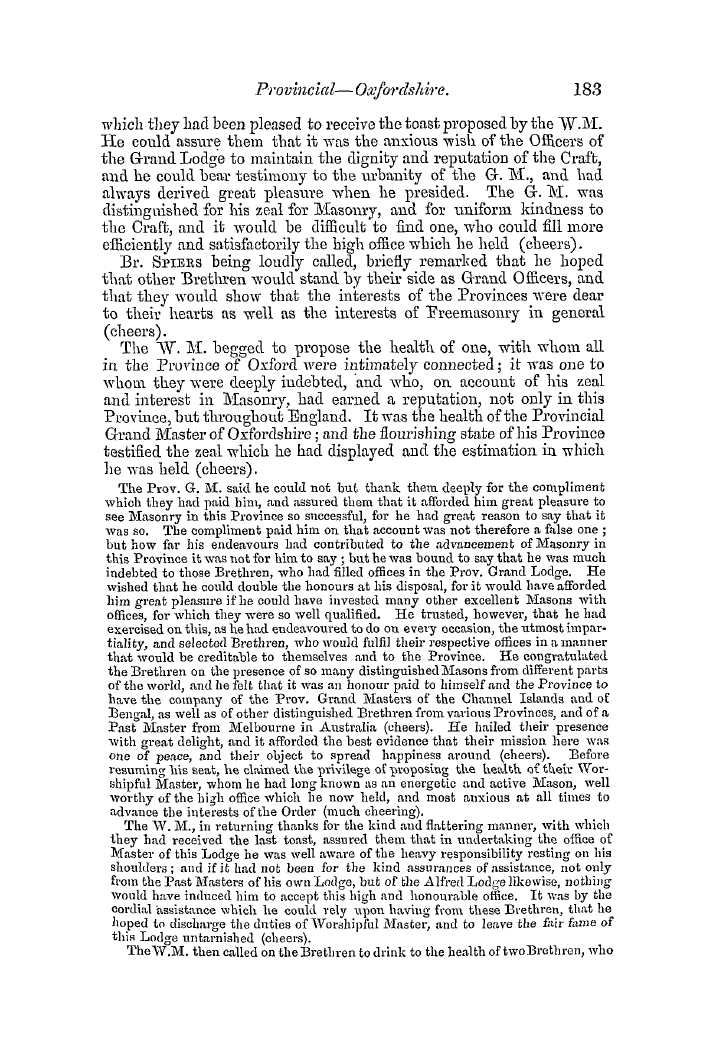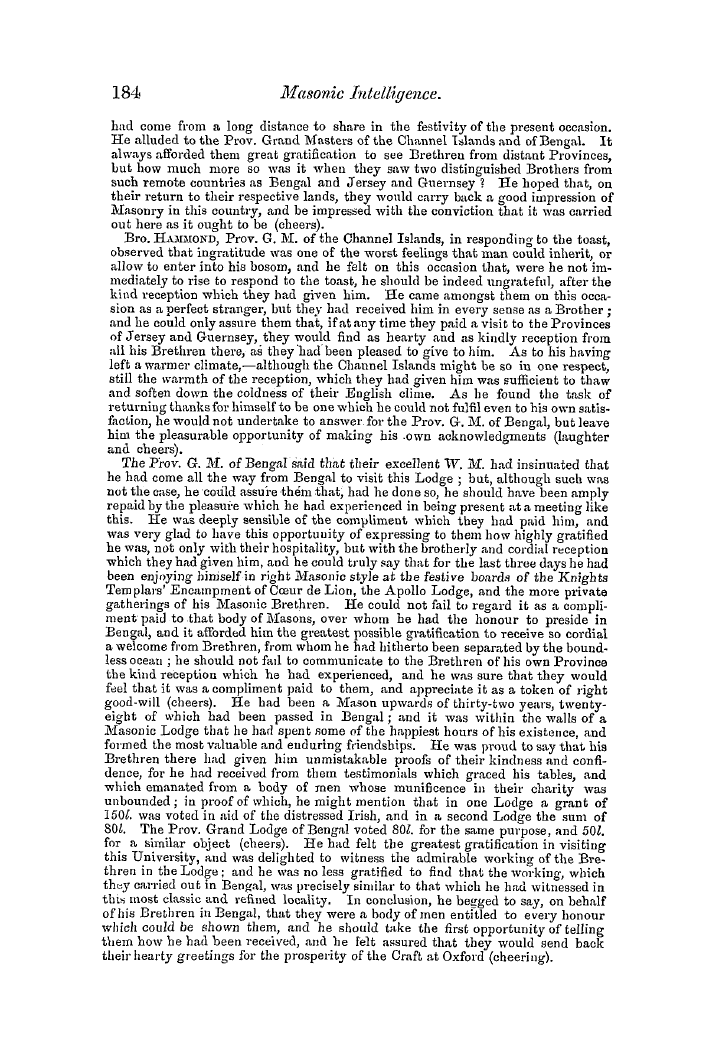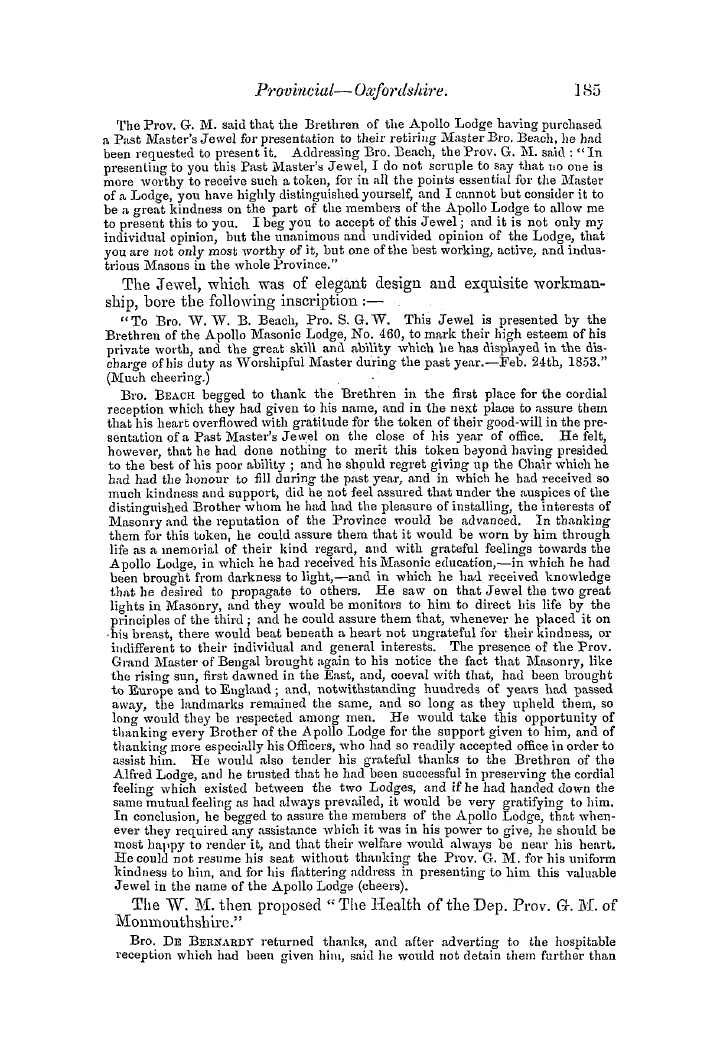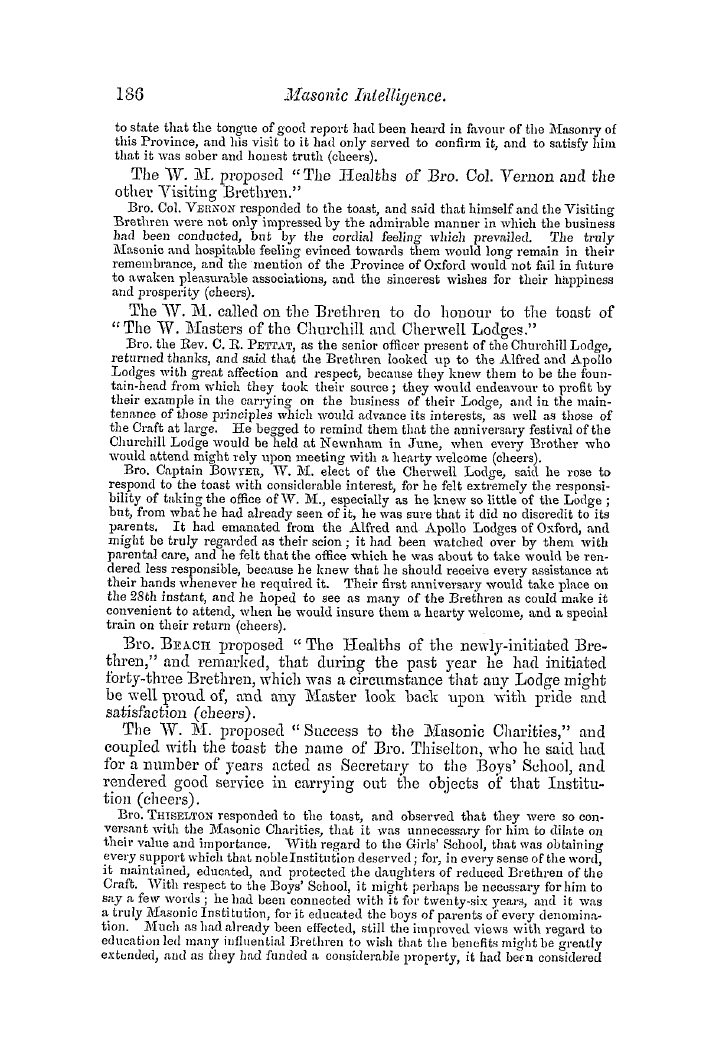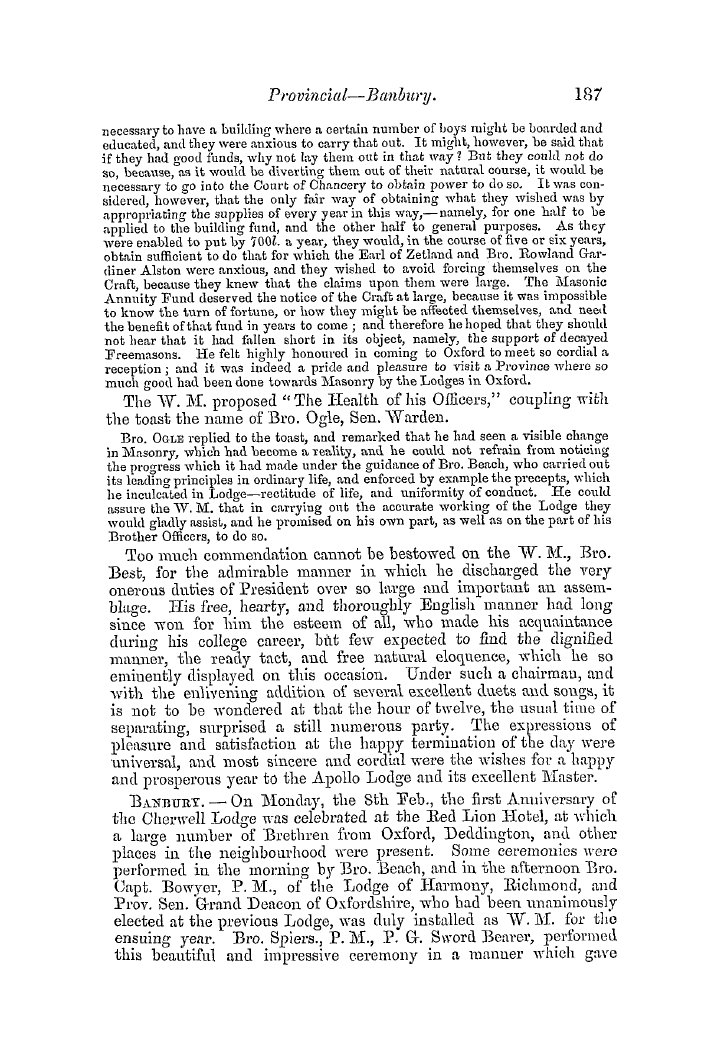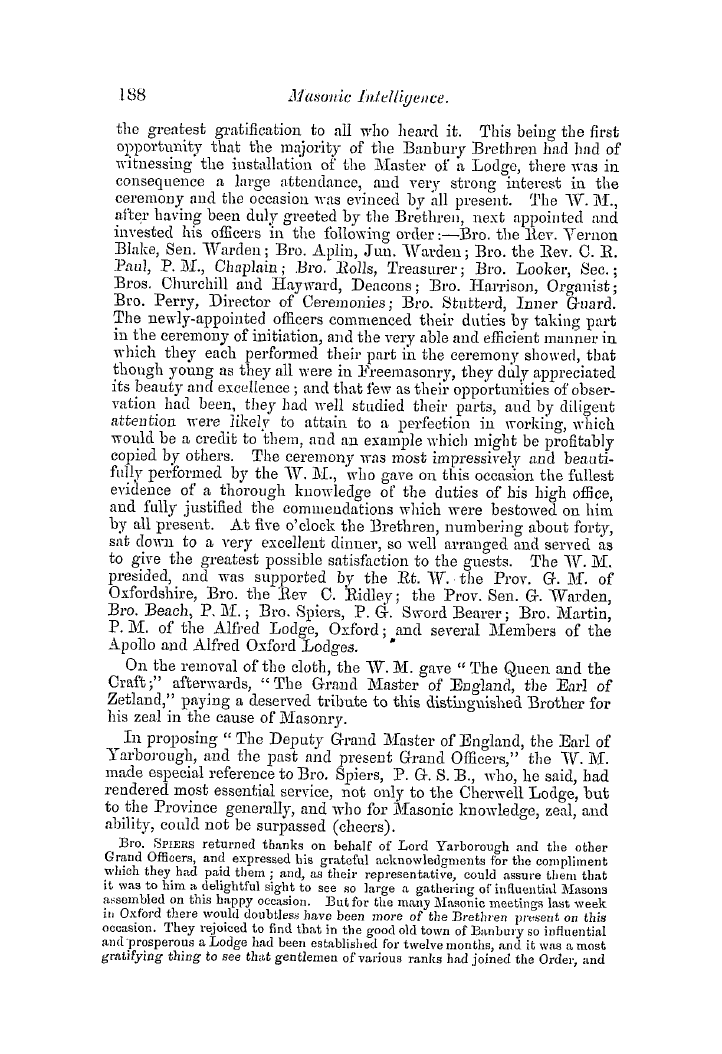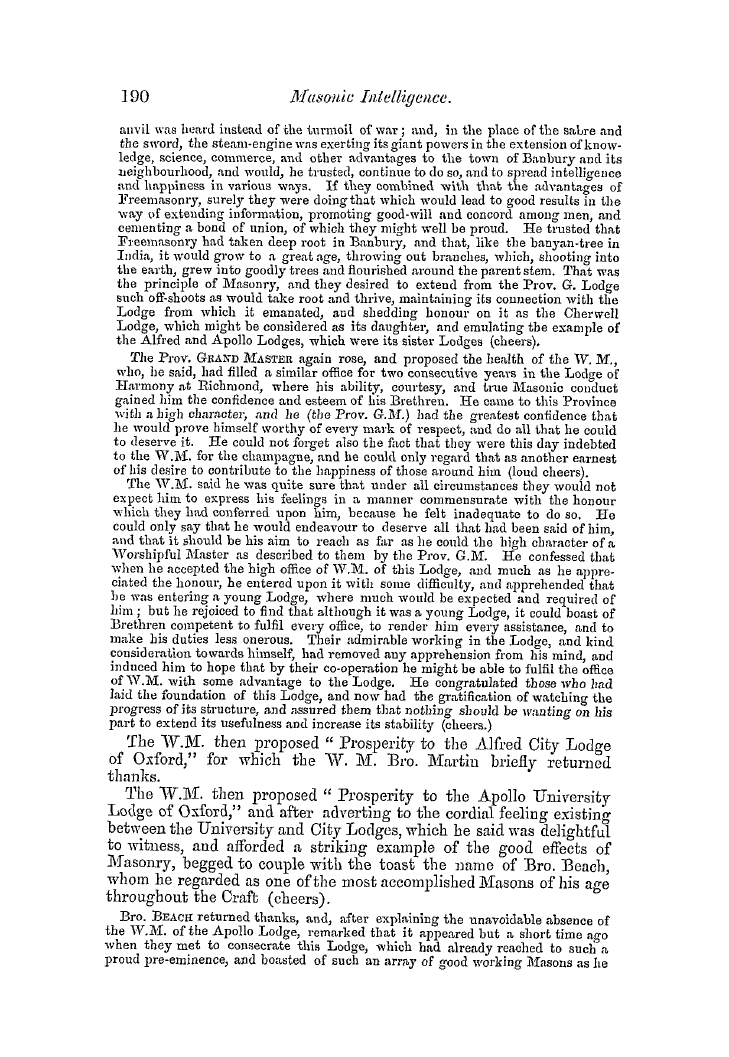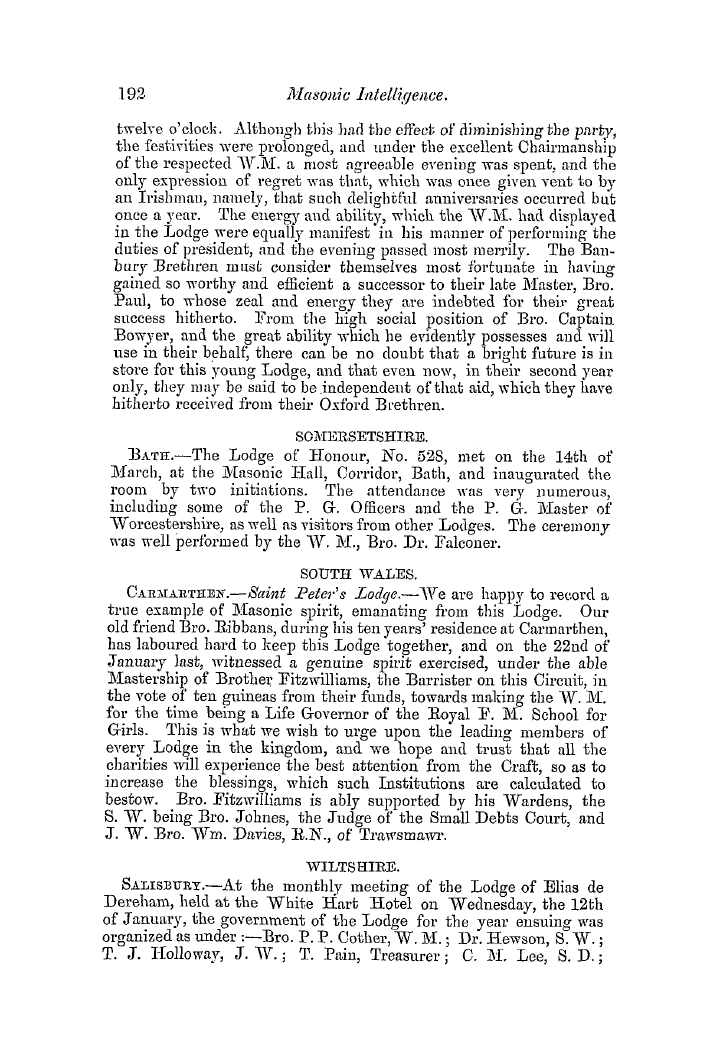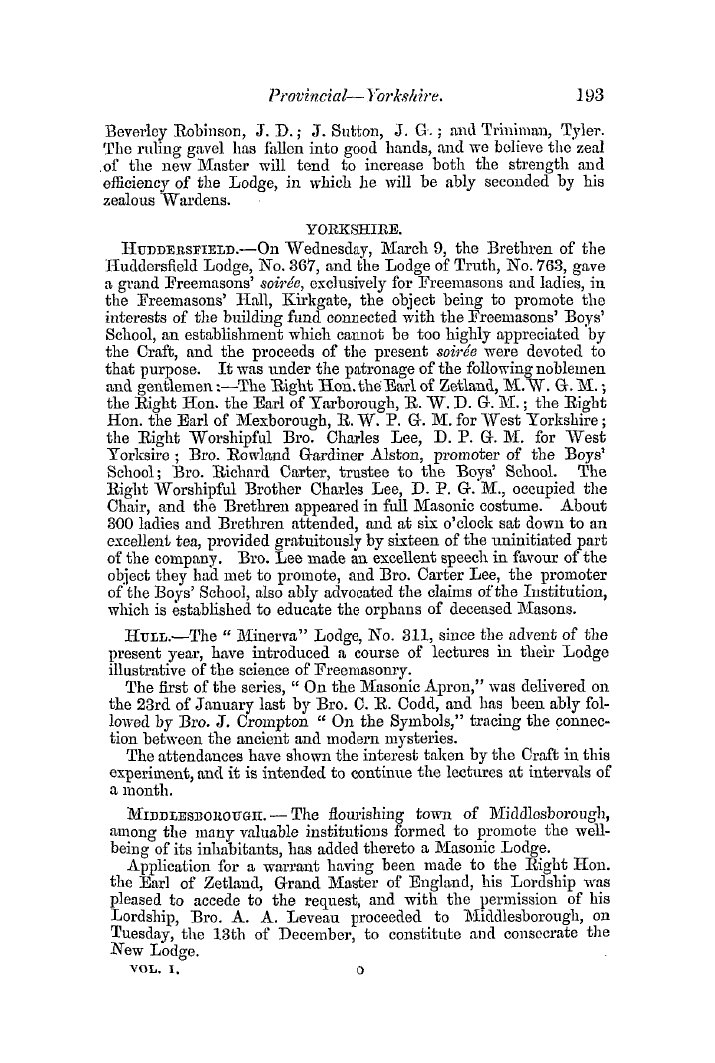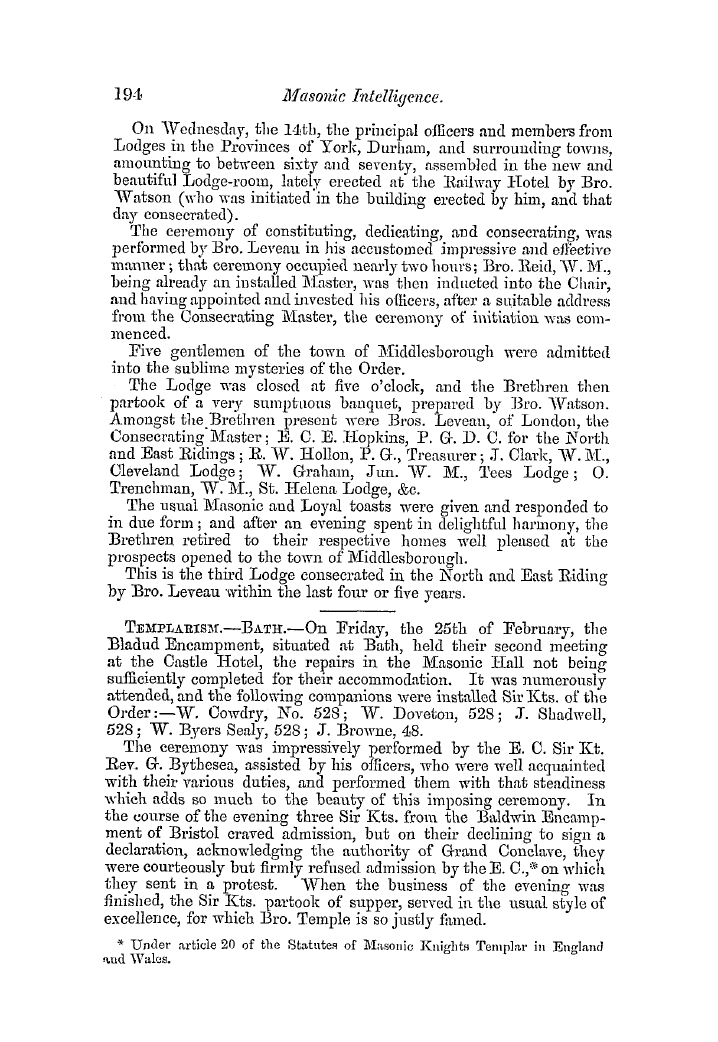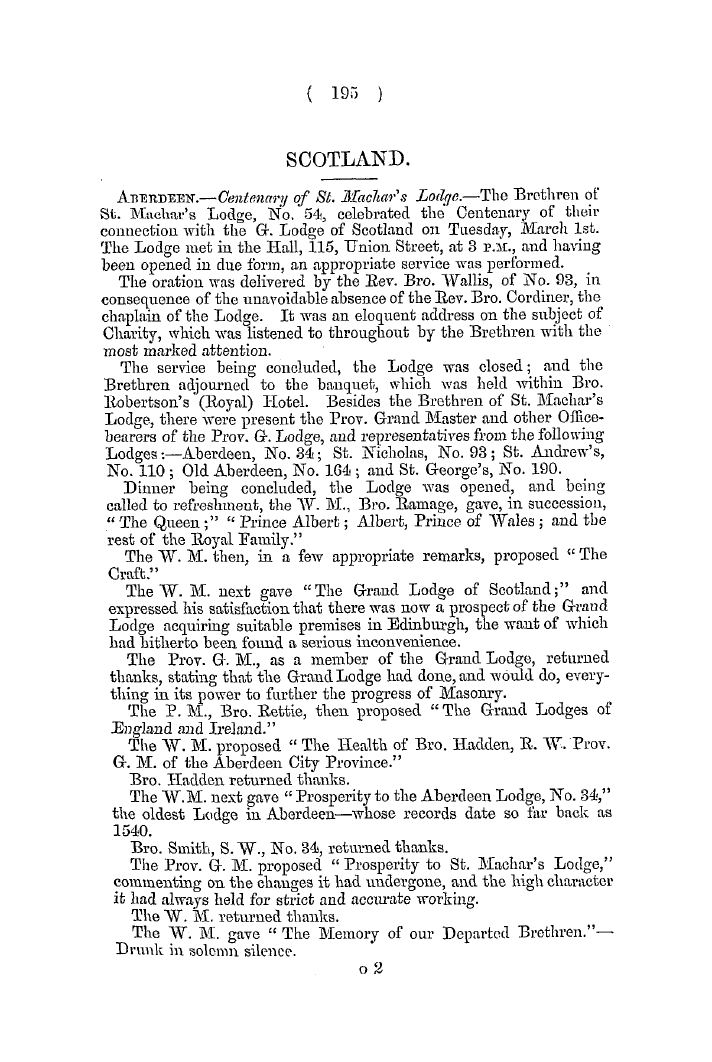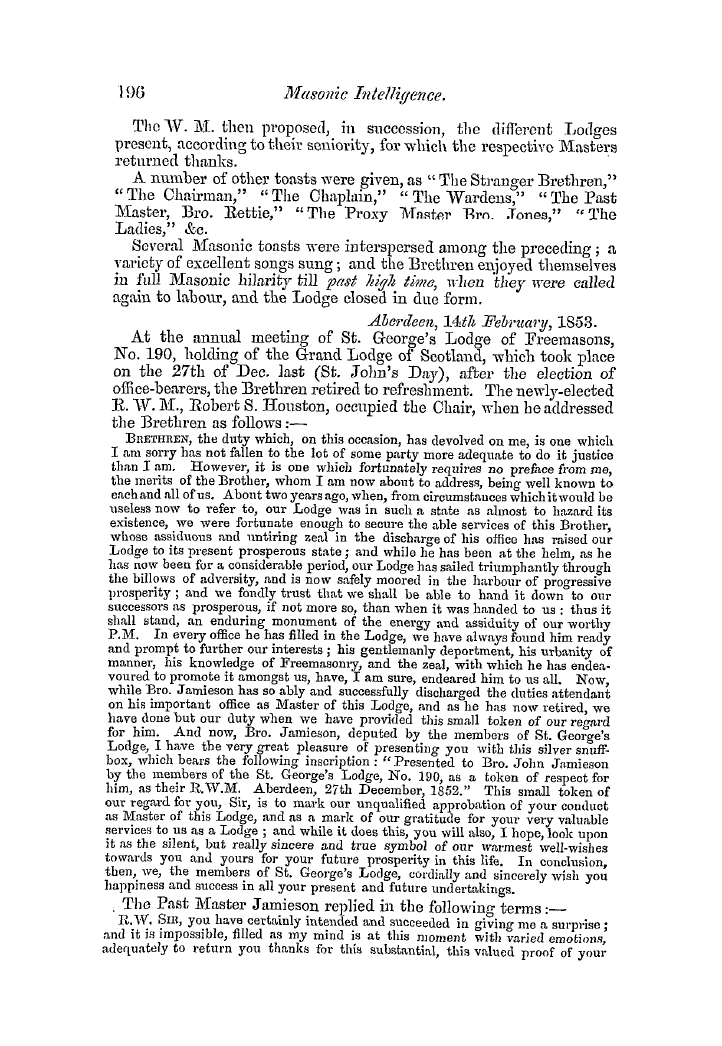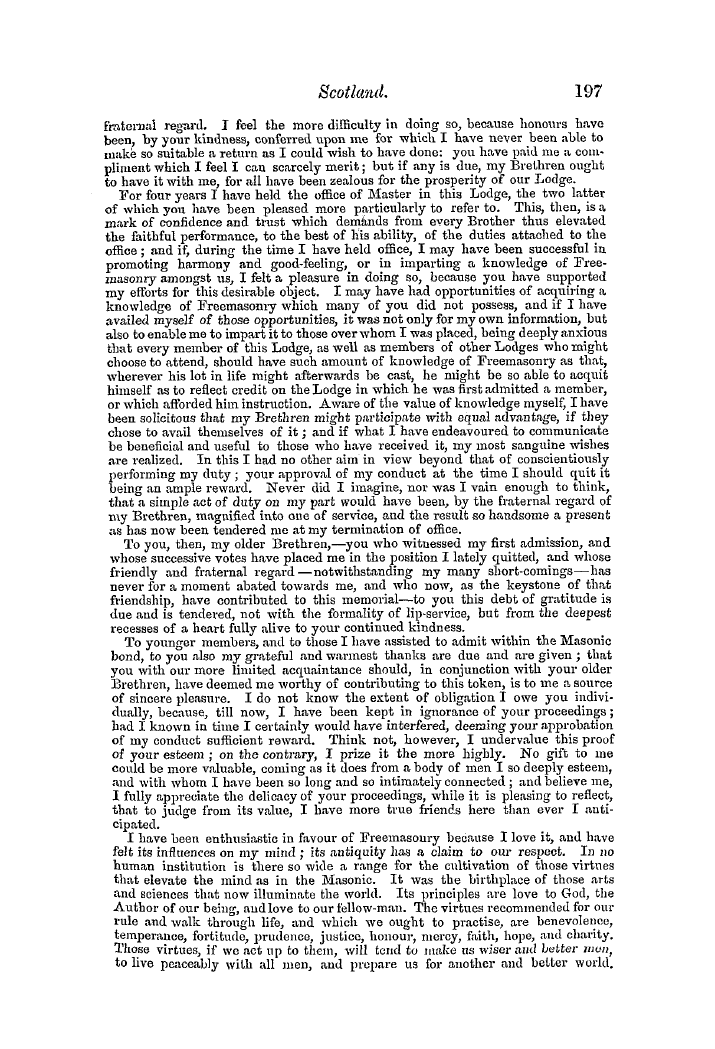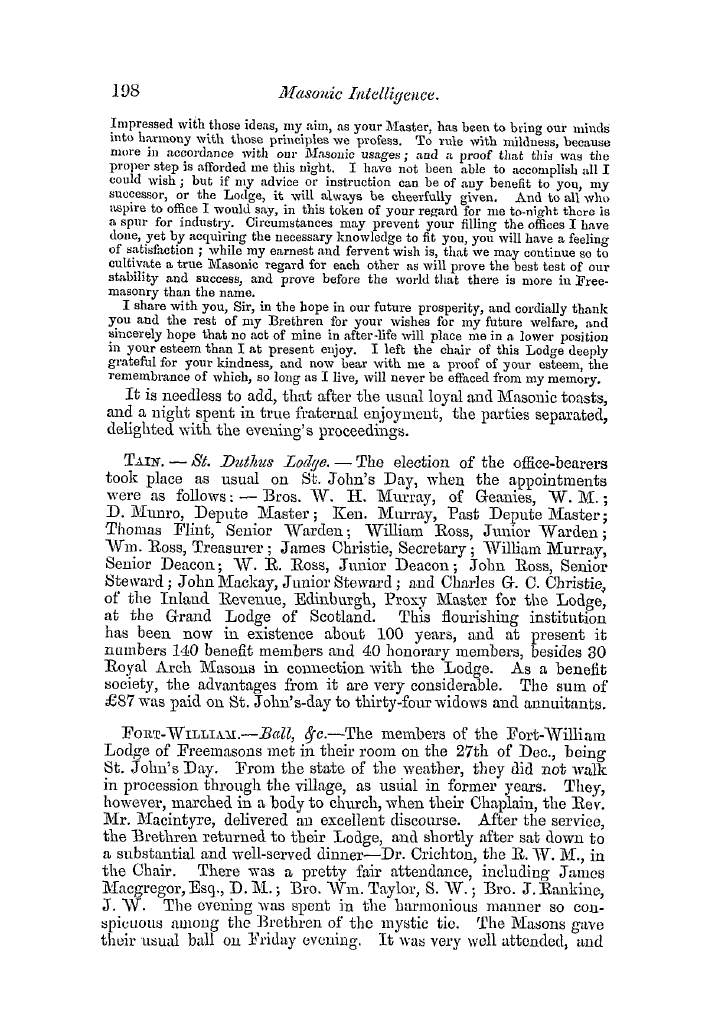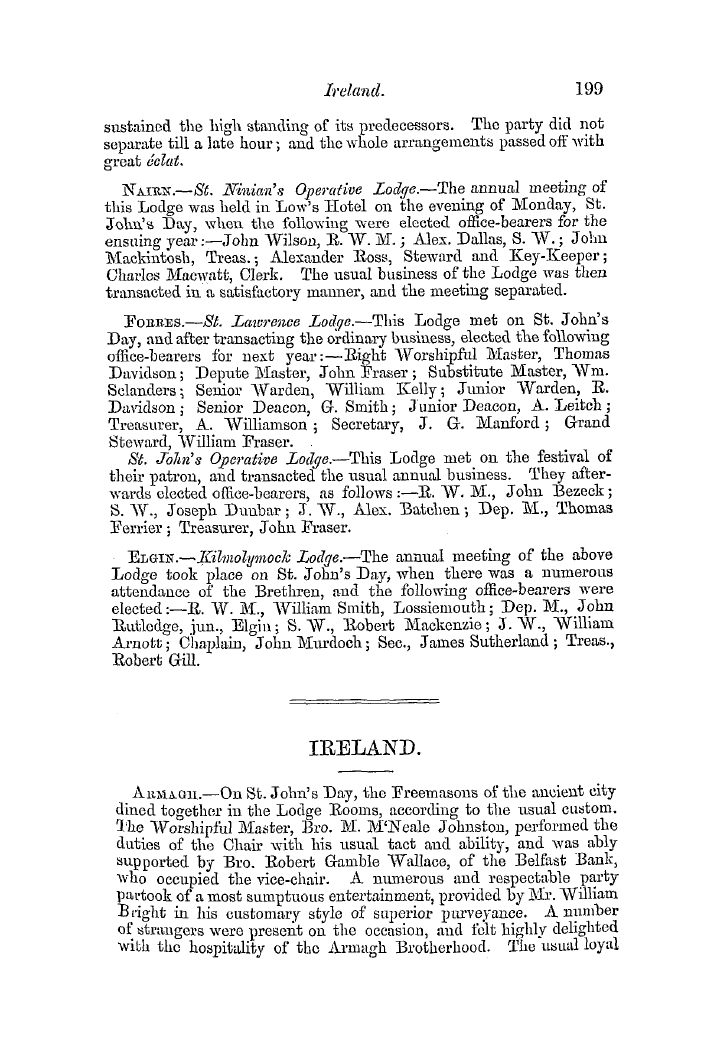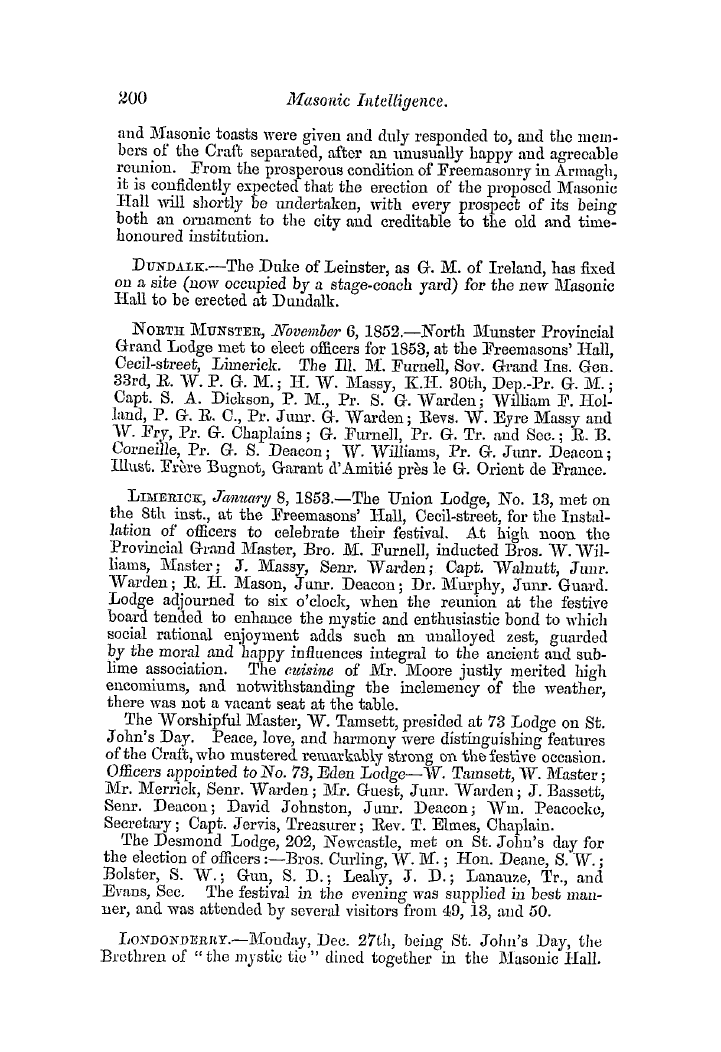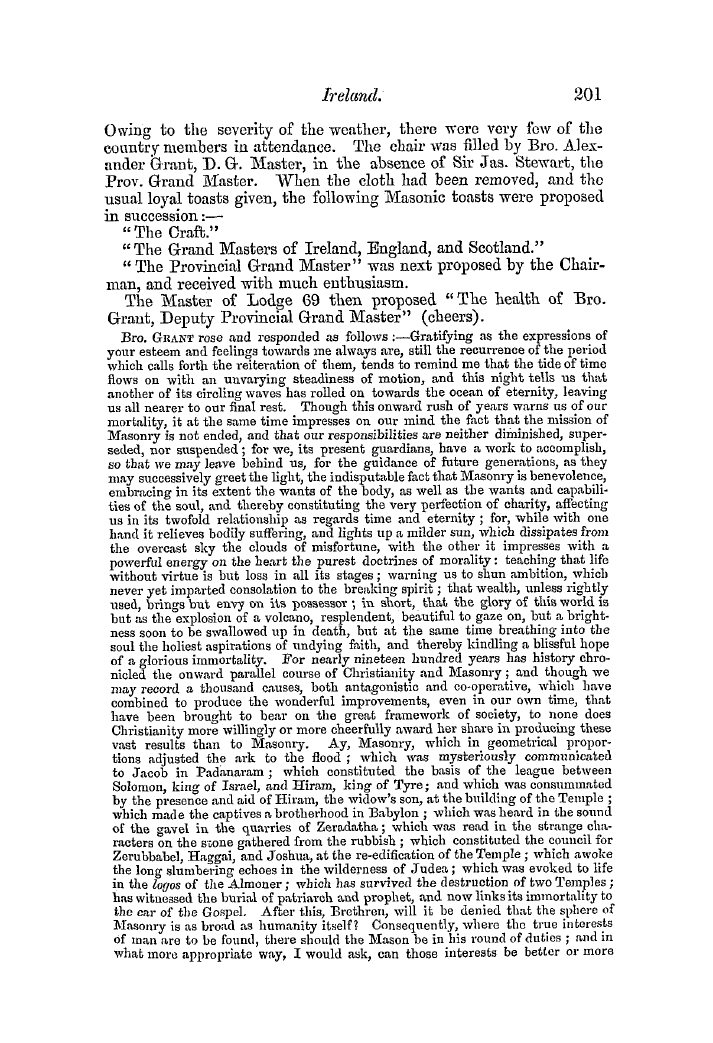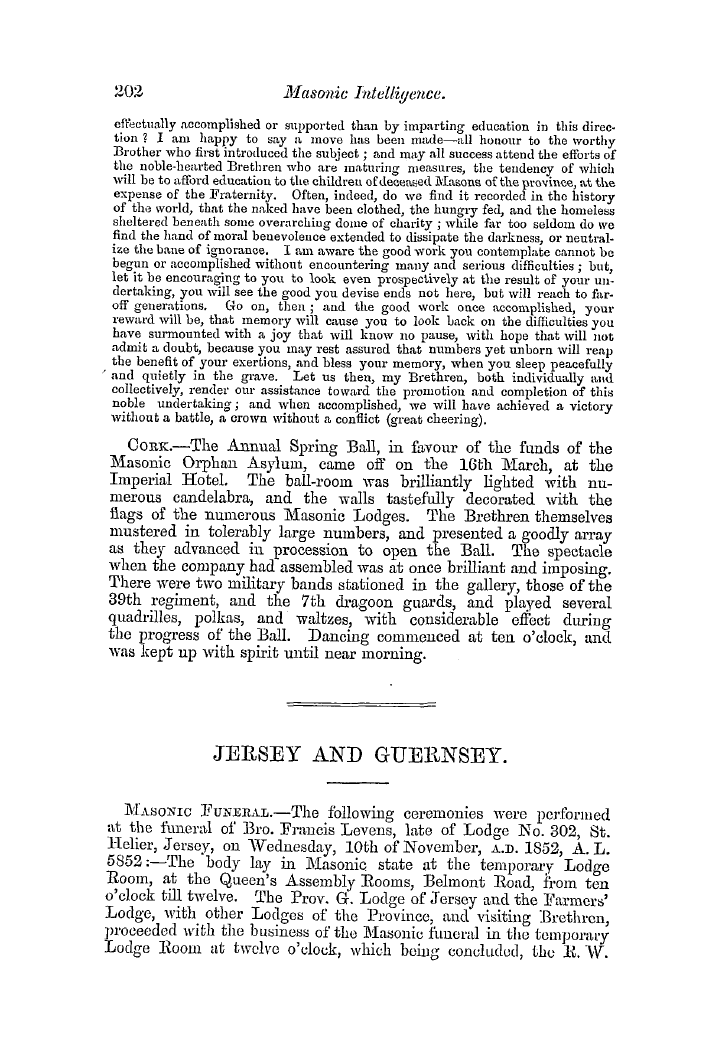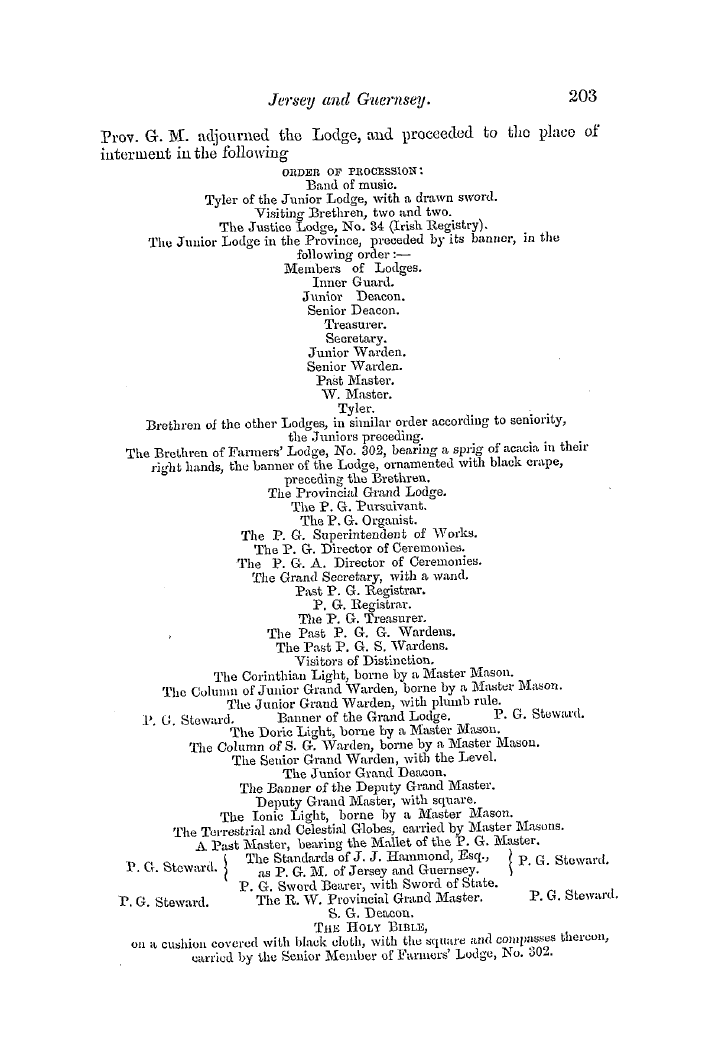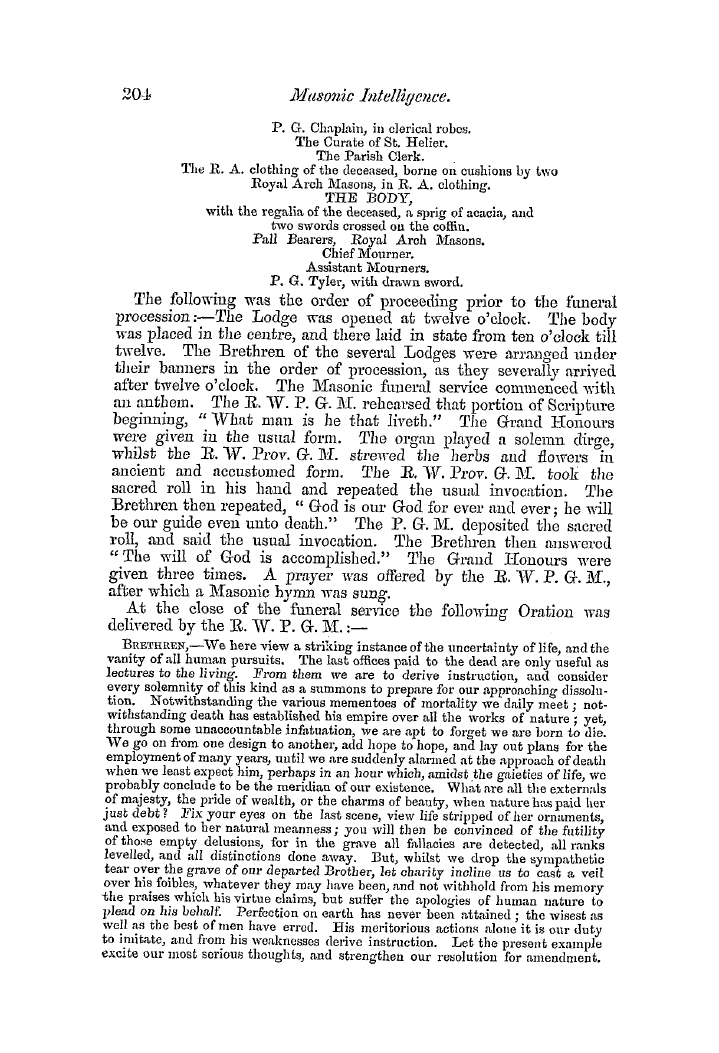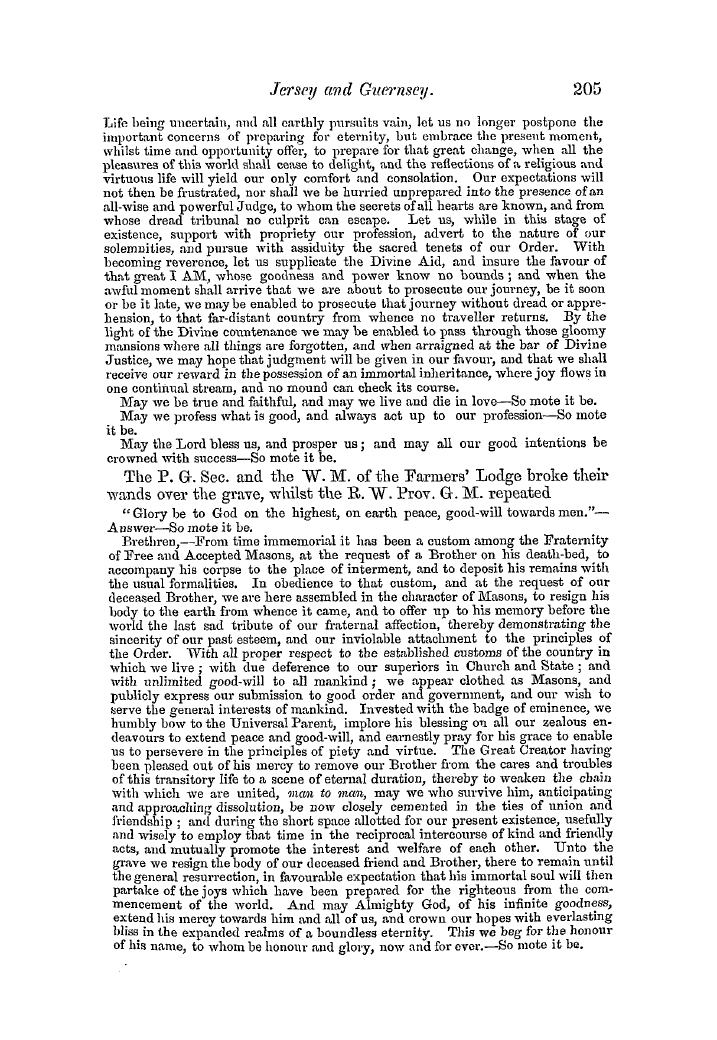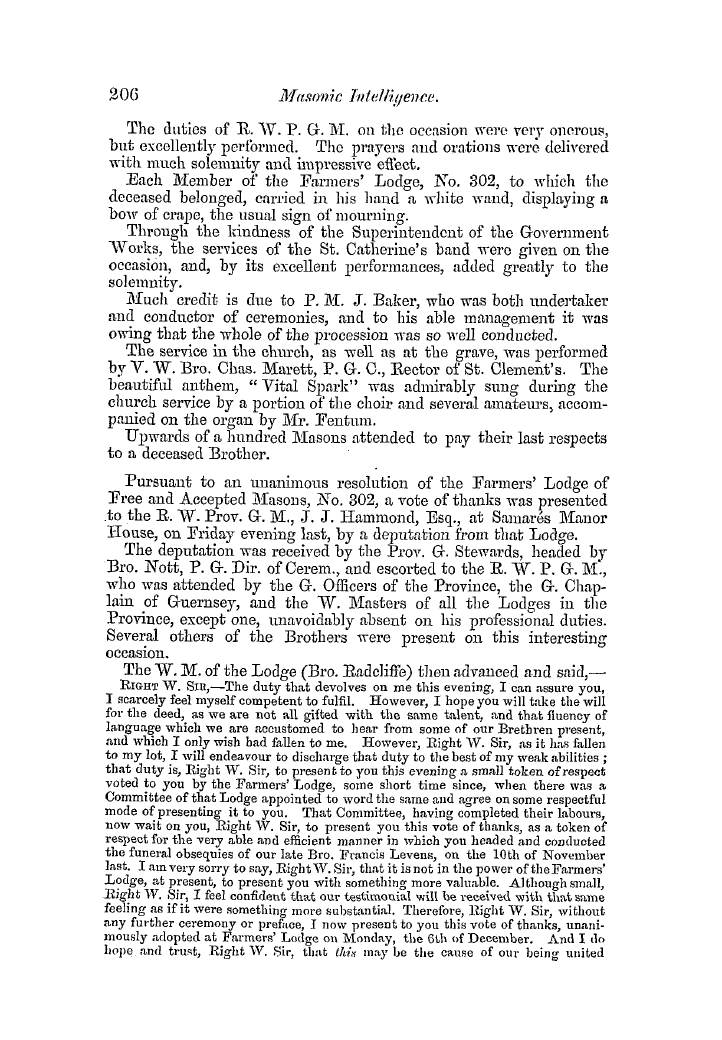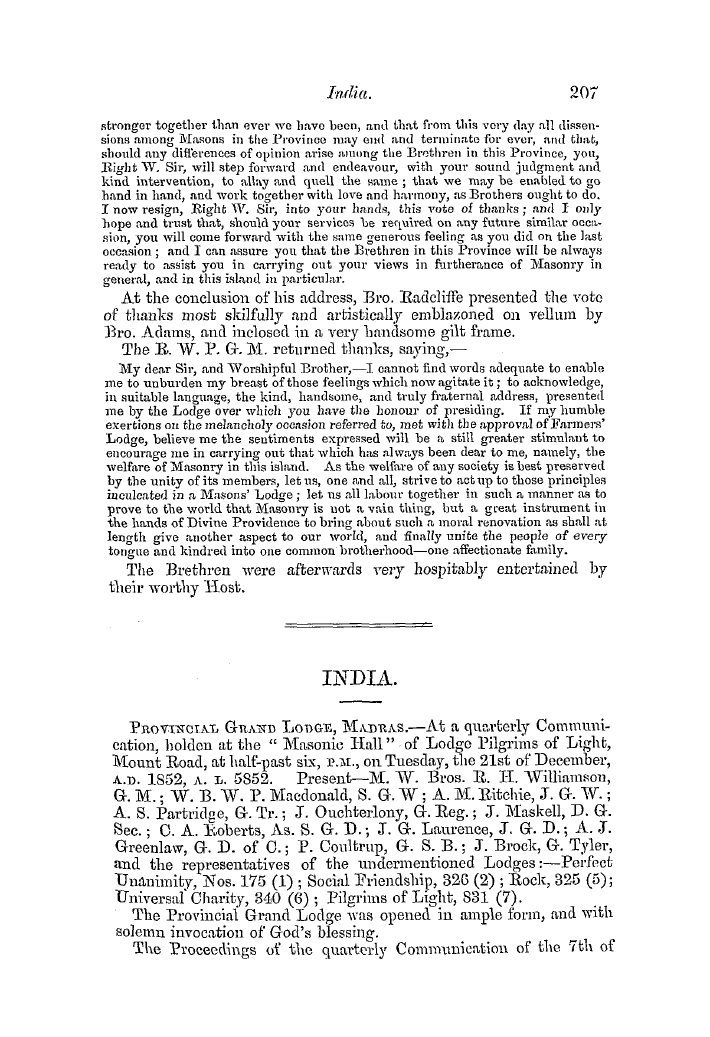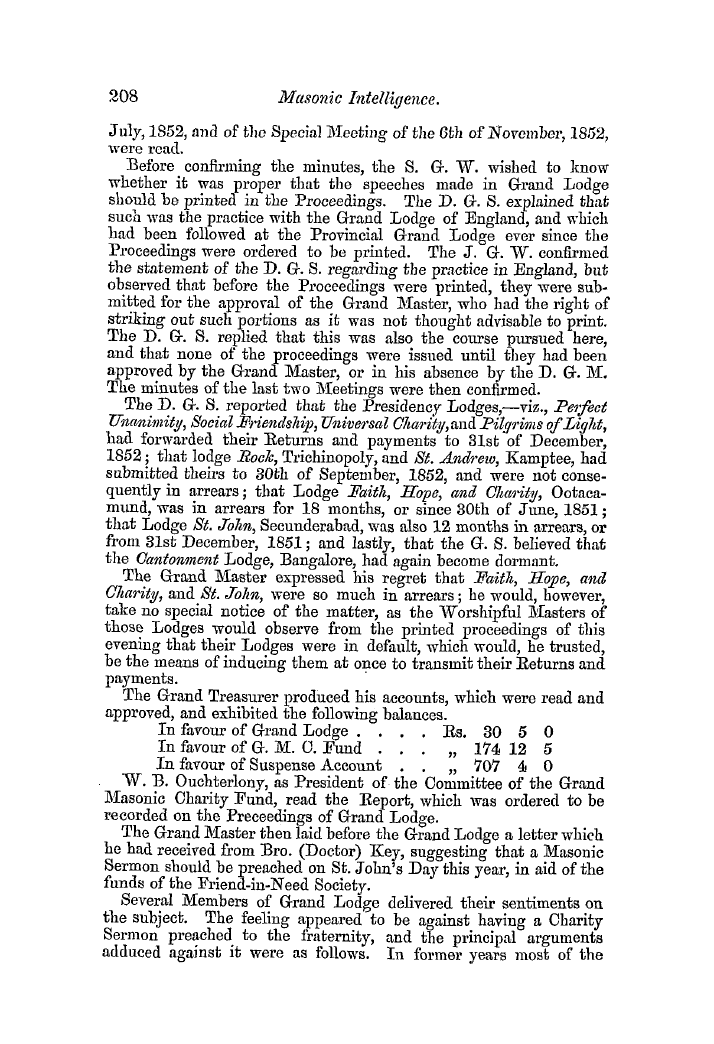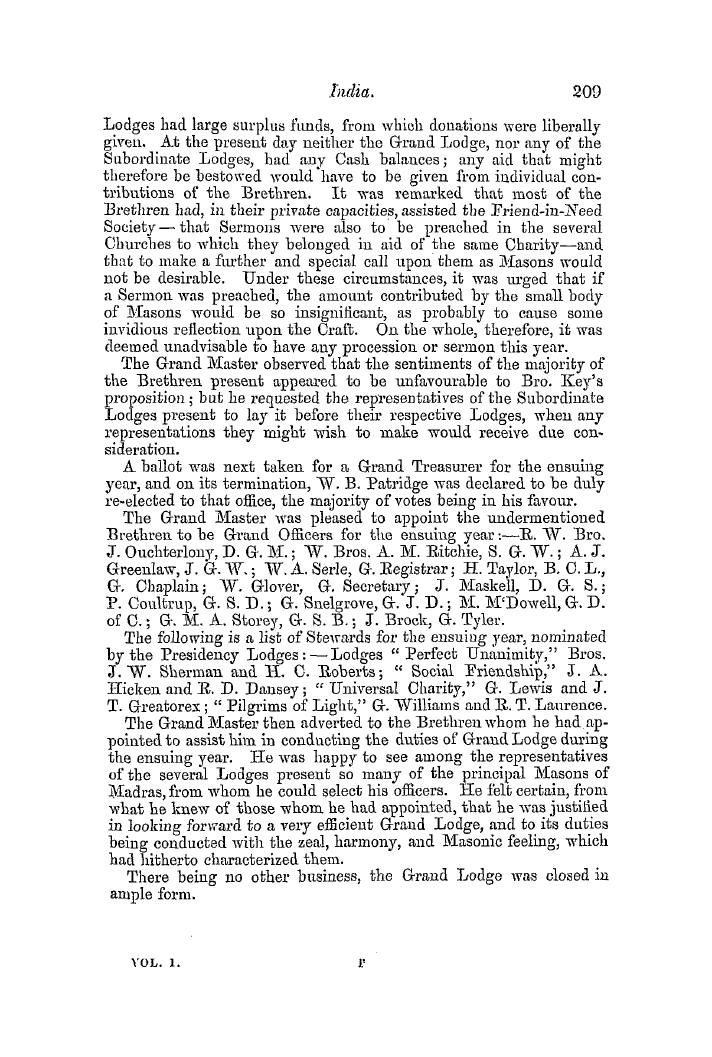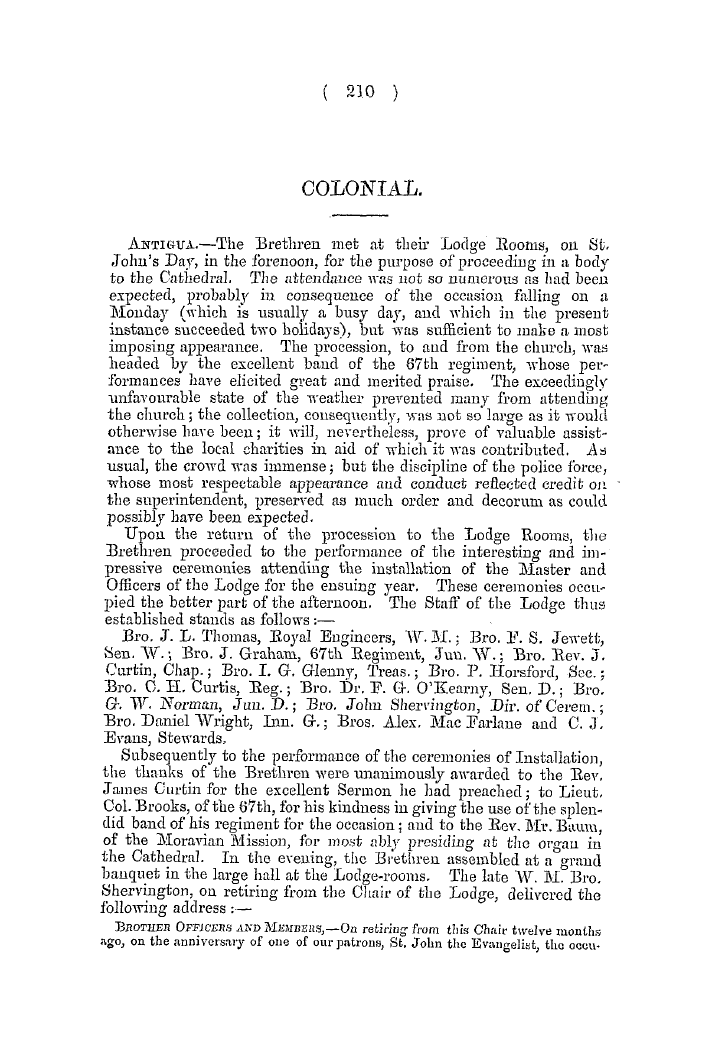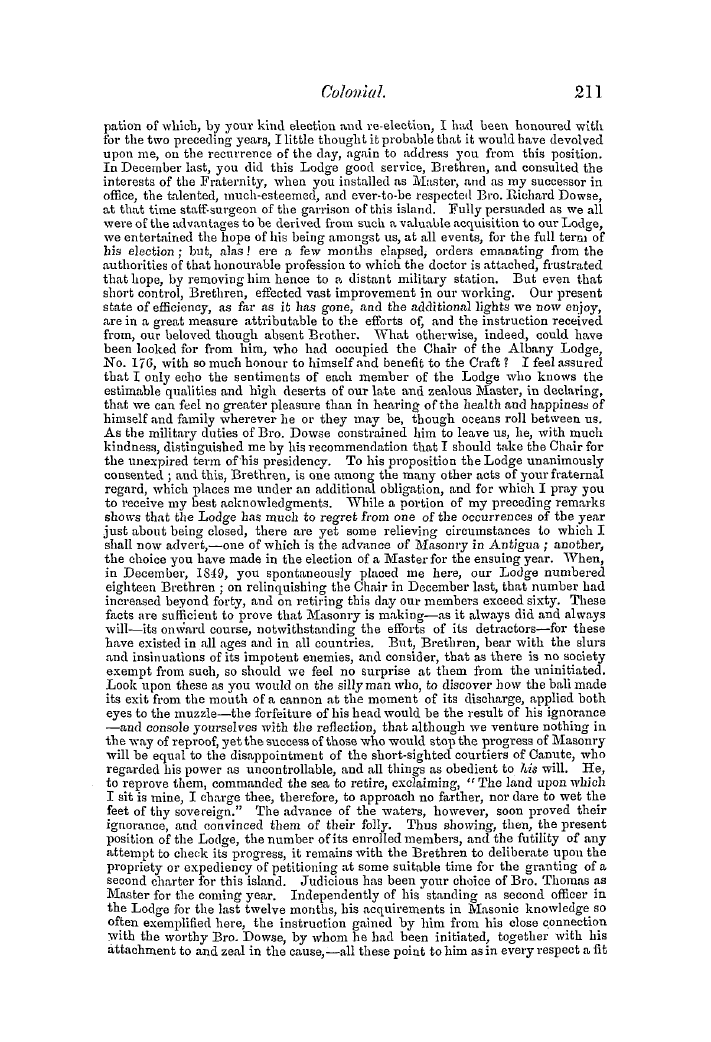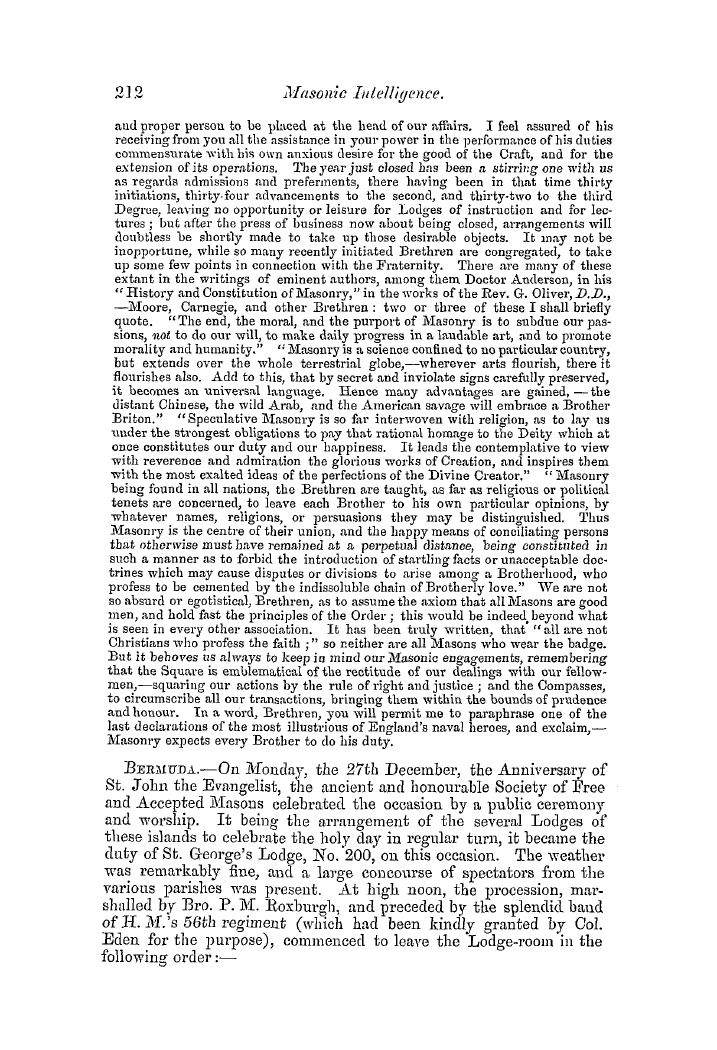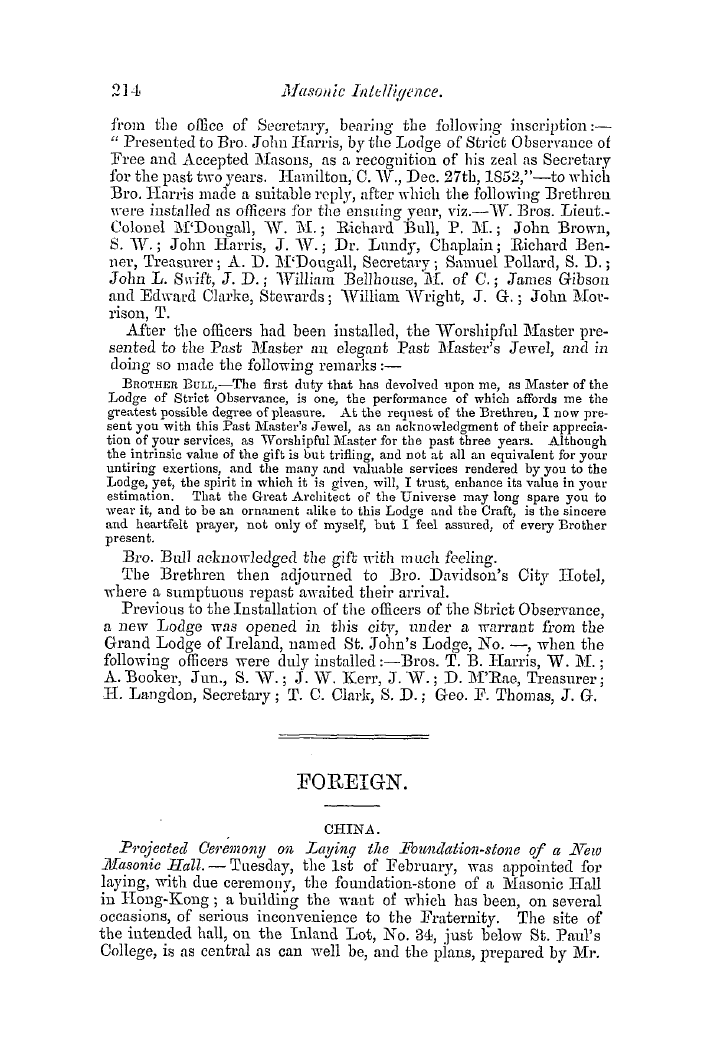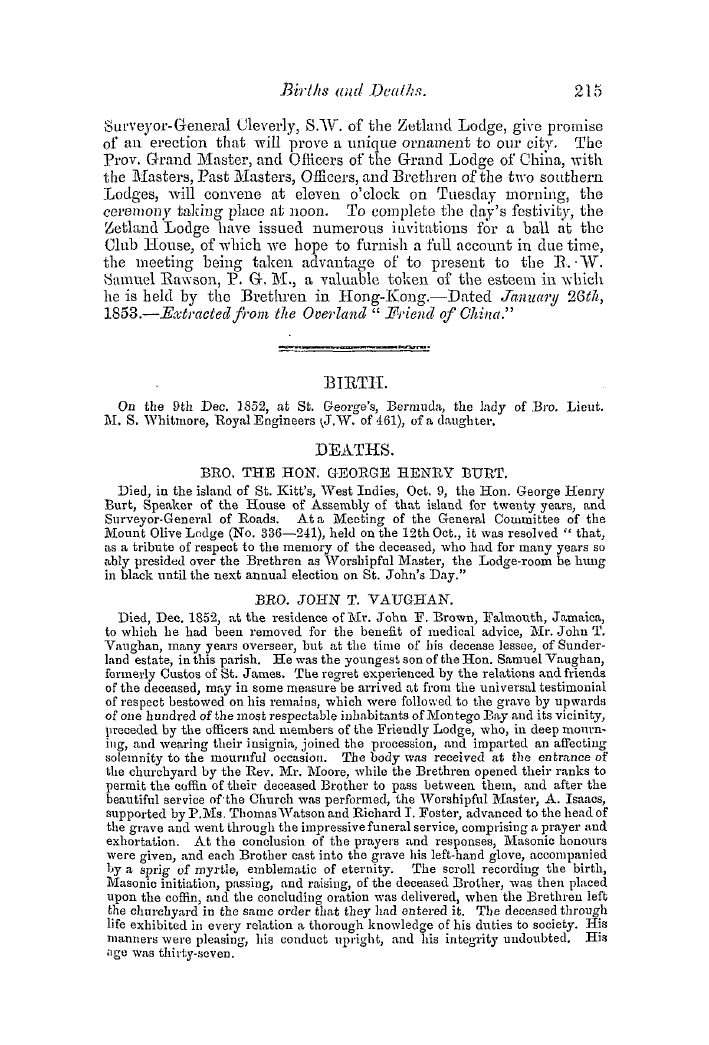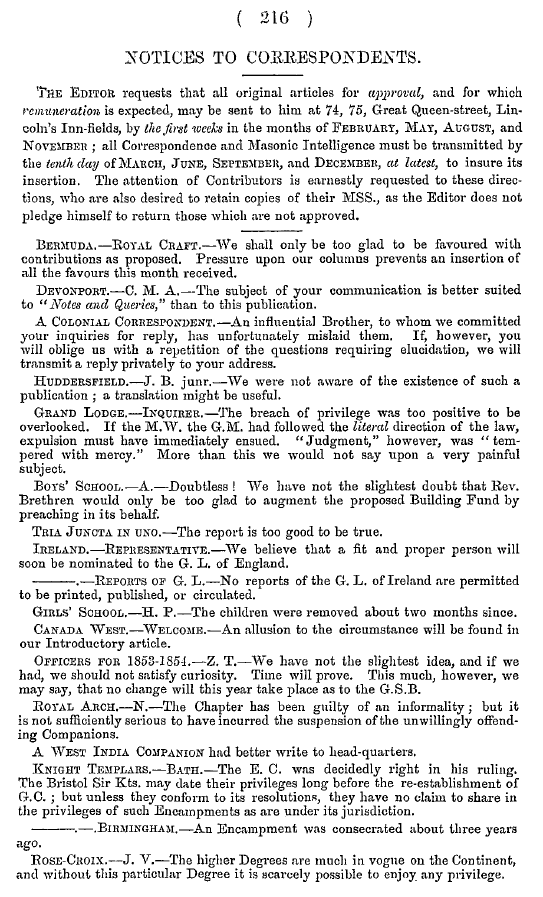-
Articles/Ads
Article THE " GOLDEN ASS" OF APULEIUS. ← Page 9 of 9
Note: This text has been automatically extracted via Optical Character Recognition (OCR) software.
The " Golden Ass" Of Apuleius.
of Rosicrucianism , occur naturally to us . " Had be but listened to Mejnour , had he but delayed the last ancl most perilous ordeal of daring AA'isdom until the requisite training and initiation had been completed , yoiu * ancestor Avould have stood with me upon an eminence Avhich the Avaters of Death itself Avash eA'erlastinglybut cannot overfloAV . Your grandsire resisted my
, fei'A'ent praj'ers , disobeyed my most absolute commands , and in the sublime rashness of a soul that panted for secrets , Avhich he AVIIO desires orbs and sceptres never can obtain , perished , the victim of his OAvn frenzy . " * In conclusion , I would wish to say a few words on the real and proper application of ancient authors to the illustration of
Masonry . It has been too much the fashion to run the Masonic theory off its legs , ancl to apply it as a test to writings , things , and persons , merely on the strength of some fancied coincidence . Masonry , as we now have it , is a modification of an ancient principle , and it is the antiquity of the fundamental principles of Masonry which it is most important to prox'e . Symbolism is older than written language , and so Catholic are
its principles , that any system , whether of moral observance , or of mutual recognition , grounded thereupon , must possess a natural uniA'ersality , liable , indeed , to various changes in detail , but consistent in the mass . The writings of Apuleius , of Diodorus Siculus , Clemens of Alexandria , Jamblicbus , ancl a host of other authors , all present traces of the leading principles of the
secret societies of antiquity . Errors have crept into them , as into Masonry , from time to time , ancl many pure and simple observances have been corrupted ; but there has always been a rallying poAver , even in ancient mysticism ; and in all ages , clear-sighted and upright minds have not been Avanting to separate the genuine from the spuriousthe wheat from the
, tares . It is for the good Mason not to look upon the work of his Lodge as a series of dead and unmeaning forms , but as an outward representation of some deep and solemn duties , analogous to those forms . Even as those who shared in the genuine mysteries of old were said to become better , wiser , and happier ; so should Masonry teach us to live xvell within oxu * selves and xvith
our neighbour , ancl to pass through this world as pilgrims duly prepared for the next . THEODORE A . BUCKLEY .
Note: This text has been automatically extracted via Optical Character Recognition (OCR) software.
The " Golden Ass" Of Apuleius.
of Rosicrucianism , occur naturally to us . " Had be but listened to Mejnour , had he but delayed the last ancl most perilous ordeal of daring AA'isdom until the requisite training and initiation had been completed , yoiu * ancestor Avould have stood with me upon an eminence Avhich the Avaters of Death itself Avash eA'erlastinglybut cannot overfloAV . Your grandsire resisted my
, fei'A'ent praj'ers , disobeyed my most absolute commands , and in the sublime rashness of a soul that panted for secrets , Avhich he AVIIO desires orbs and sceptres never can obtain , perished , the victim of his OAvn frenzy . " * In conclusion , I would wish to say a few words on the real and proper application of ancient authors to the illustration of
Masonry . It has been too much the fashion to run the Masonic theory off its legs , ancl to apply it as a test to writings , things , and persons , merely on the strength of some fancied coincidence . Masonry , as we now have it , is a modification of an ancient principle , and it is the antiquity of the fundamental principles of Masonry which it is most important to prox'e . Symbolism is older than written language , and so Catholic are
its principles , that any system , whether of moral observance , or of mutual recognition , grounded thereupon , must possess a natural uniA'ersality , liable , indeed , to various changes in detail , but consistent in the mass . The writings of Apuleius , of Diodorus Siculus , Clemens of Alexandria , Jamblicbus , ancl a host of other authors , all present traces of the leading principles of the
secret societies of antiquity . Errors have crept into them , as into Masonry , from time to time , ancl many pure and simple observances have been corrupted ; but there has always been a rallying poAver , even in ancient mysticism ; and in all ages , clear-sighted and upright minds have not been Avanting to separate the genuine from the spuriousthe wheat from the
, tares . It is for the good Mason not to look upon the work of his Lodge as a series of dead and unmeaning forms , but as an outward representation of some deep and solemn duties , analogous to those forms . Even as those who shared in the genuine mysteries of old were said to become better , wiser , and happier ; so should Masonry teach us to live xvell within oxu * selves and xvith
our neighbour , ancl to pass through this world as pilgrims duly prepared for the next . THEODORE A . BUCKLEY .































































































































































































